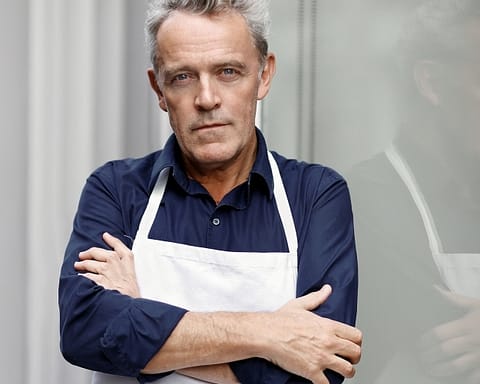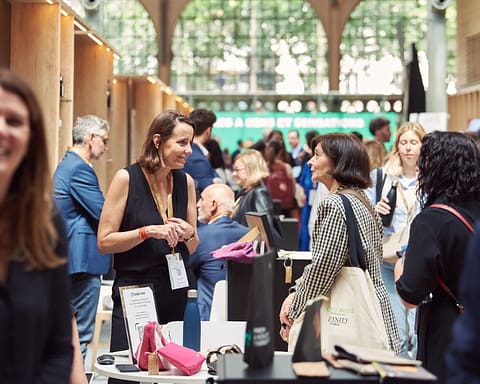[vc_row njt-role=”people-in-the-roles” njt-role-user-roles=”administrator,editor,author,armember”][vc_column][vc_column_text]
Parliamentarians from across the country want to ban the import of Russian diamonds into Europe, suspected of helping to finance the war. The lobby of the Antwerp platform, through which a quarter of Russian diamonds transit, believes that this ban would be circumvented and catastrophic for them.
Diamonds stained – even symbolically – with the blood of war lose all their beauty.
It was already the sense of the prohibitions carried in the years against the “diamonds of the blood” resulting from the African continent and whose trade was used to nourish conflicts, in particular in Angola in the Nineties.
The Russian diamonds are now in the sights of the Belgian deputies, who wish to have their imports banned by the European Commission. They have unanimously voted for a resolution to this effect, which must still be submitted to the House’s plenary session at the beginning of May for final adoption.
The parliamentary text asks the Belgian government to “explicitly advocate within the European Council the introduction of an import ban on both the direct and indirect trade in Russian diamonds.”
Strong signal
“After such a strong signal from the Belgian Parliament, I don’t really see how diamonds could be ignored in the eleventh package of EU sanctions, targeting Russia,” said Wednesday to AFP the ecologist deputy Samuel Cogolati, active defender of the text.
The gesture has nothing neutral indeed, coming from a country that is traditionally located at the main platform of the world trade in rough diamonds, namely the city of Antwerp. “About 85% of the world’s rough diamonds, half of the polished diamonds, and 40% of the industrial diamonds pass through Antwerp. “25% of these diamonds come from Russia,“ according to several sources.
These diamonds are an important source of foreign exchange for the country led by Vladimir Putin, valued at some 4 billion dollars. The profits of a company such as Alrosa, which specializes in diamond mining and is one-third owned by the Russian state and run by Serguei Ivanov, a close associate of the Russian president, are said to be used for warlike purposes.
Antwerp bypassed
At the end of March 2022, Ukrainian President Volodymyr Zelensky pleaded in a video conference before the Belgian Parliament for a boycott of Russian diamonds. His rousing speech – “Peace is much more valuable than diamonds (…) so help us” – has not been followed up so far.
The Belgian authorities have so far shown little receptivity, arguing that Antwerp is being bypassed in favor of other hubs, such as Dubai. Russian diamonds could thus transit through Antwerp, obtaining a “certificate of virginity” before arriving in Europe.
In the corridors of Brussels, Tom Neys, spokesman for AWDC, the Antwerp Diamond Dealers Association, also argued that in the event of a ban, “it would take less than 48 hours for the Russians to put their diamonds on planes and sell them in India. With a “null impact for Russia” and “catastrophic” for Antwerp.”
An idea that is gaining ground
Nevertheless, the idea of banning Russian diamonds is gaining ground, and not just at the European level. Such a measure will also be put on the table at the next G7 meeting, May 19-21, in Hiroshima, Japan.
In addition to three European Union member countries (Germany, France, and Italy), the Group of Seven also includes Great Britain, Canada, the United States, and Japan. So many important markets for luxury, and the sale of diamonds in particular. The United States has, for its part, sanctioned the Russian company Alrosa since the beginning of the war.
Read also > Tag Heuer introduces synthetic diamonds in its new watch
Featured photo : © Presse[/vc_column_text][/vc_column][/vc_row][vc_row njt-role=”not-logged-in”][vc_column][vc_column_text]
Parliamentarians from across the country want to ban the import of Russian diamonds into Europe, suspected of helping to finance the war. The lobby of the Antwerp platform, through which a quarter of Russian diamonds transit, believes that this ban would be circumvented and catastrophic for them.
Diamonds stained – even symbolically – with the blood of war lose all their beauty.
It was already the sense of the prohibitions carried in the years against the “diamonds of the blood” resulting from the African continent and whose trade was used to nourish conflicts, in particular in Angola in the Nineties.
The Russian diamonds are now in the sights of the Belgian deputies, who wish to have their imports banned by the European Commission. They have unanimously voted for a resolution to this effect, which must still be submitted to the House’s plenary session at the beginning of May for final adoption.
The parliamentary text asks the Belgian government to “explicitly advocate within the European Council the introduction of an import ban on both the direct and indirect trade in Russian diamonds.”
Strong signal
“After such a strong signal from the Belgian Parliament, I don’t really see how diamonds could be ignored in the eleventh package of EU sanctions, targeting Russia,” said Wednesday to AFP the ecologist deputy Samuel Cogolati, active defender of the text.
The gesture has nothing neutral indeed, coming from a country that is traditionally located at the main platform of the world trade in rough diamonds, namely the city of Antwerp. “About 85% of the world’s rough diamonds, half of the polished diamonds, and 40% of the industrial diamonds pass through Antwerp. “25% of these diamonds come from Russia,“ according to several sources.
[…][/vc_column_text][vc_cta h2=”This article is reserved for subscribers.” h2_font_container=”tag:h2|font_size:16|text_align:left” h2_use_theme_fonts=”yes” h4=”Subscribe now !” h4_font_container=”tag:h2|font_size:32|text_align:left|line_height:bas” h4_use_theme_fonts=”yes” txt_align=”center” color=”black” add_button=”right” btn_title=”I SUBSCRIBE !” btn_color=”danger” btn_size=”lg” btn_align=”center” use_custom_fonts_h2=”true” use_custom_fonts_h4=”true” btn_button_block=”true” btn_custom_onclick=”true” btn_link=”url:https%3A%2F%2Fluxus-plus.com%2Fen%2Fsubscriptions-and-newsletter-special-offer-valid-until-september-30-2020-2-2%2F”]Get unlimited access to all articles and live a new reading experience, preview contents, exclusive newsletters…
Already have an account ? Please log in.
[/vc_cta][vc_column_text]Featured photo : © Presse [/vc_column_text][/vc_column][/vc_row][vc_row njt-role=”people-in-the-roles” njt-role-user-roles=”subscriber,customer”][vc_column][vc_column_text]
Parliamentarians from across the country want to ban the import of Russian diamonds into Europe, suspected of helping to finance the war. The lobby of the Antwerp platform, through which a quarter of Russian diamonds transit, believes that this ban would be circumvented and catastrophic for them.
Diamonds stained – even symbolically – with the blood of war lose all their beauty.
It was already the sense of the prohibitions carried in the years against the “diamonds of the blood” resulting from the African continent and whose trade was used to nourish conflicts, in particular in Angola in the Nineties.
The Russian diamonds are now in the sights of the Belgian deputies, who wish to have their imports banned by the European Commission. They have unanimously voted for a resolution to this effect, which must still be submitted to the House’s plenary session at the beginning of May for final adoption.
The parliamentary text asks the Belgian government to “explicitly advocate within the European Council the introduction of an import ban on both the direct and indirect trade in Russian diamonds.”
Strong signal
“After such a strong signal from the Belgian Parliament, I don’t really see how diamonds could be ignored in the eleventh package of EU sanctions, targeting Russia,” said Wednesday to AFP the ecologist deputy Samuel Cogolati, active defender of the text.
The gesture has nothing neutral indeed, coming from a country that is traditionally located at the main platform of the world trade in rough diamonds, namely the city of Antwerp. “About 85% of the world’s rough diamonds, half of the polished diamonds, and 40% of the industrial diamonds pass through Antwerp. “25% of these diamonds come from Russia,“ according to several sources.
[…][/vc_column_text][vc_cta h2=”This article is reserved for subscribers.” h2_font_container=”tag:h2|font_size:16|text_align:left” h2_use_theme_fonts=”yes” h4=”Subscribe now !” h4_font_container=”tag:h2|font_size:32|text_align:left|line_height:bas” h4_use_theme_fonts=”yes” txt_align=”center” color=”black” add_button=”right” btn_title=”I SUBSCRIBE !” btn_color=”danger” btn_size=”lg” btn_align=”center” use_custom_fonts_h2=”true” use_custom_fonts_h4=”true” btn_button_block=”true” btn_custom_onclick=”true” btn_link=”url:https%3A%2F%2Fluxus-plus.com%2Fen%2Fsubscriptions-and-newsletter-special-offer-valid-until-september-30-2020-2-2%2F”]Get unlimited access to all articles and live a new reading experience, preview contents, exclusive newsletters…
Already have an account ? Please log in.
[/vc_cta][vc_column_text]Featured photo : ©Presse[/vc_column_text][/vc_column][/vc_row][vc_row njt-role=”people-in-the-roles” njt-role-user-roles=”subscriber,customer”][vc_column][vc_column_text]




































